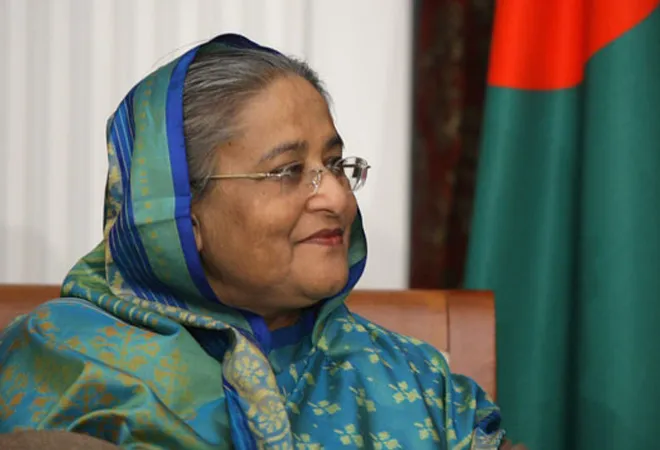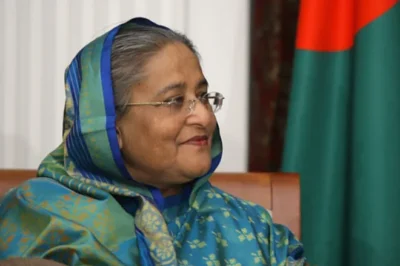
In a significant political development, the Election Commission of Bangladesh has suspended the registration of the Awami League (AL), the political party led by former Prime Minister Sheikh Hasina. This move effectively bars the party from participating in upcoming national elections, marking a pivotal moment in the country’s political landscape.
Background of the Suspension
The suspension follows a series of actions by the interim government, led by Nobel laureate Muhammad Yunus, who assumed office after Sheikh Hasina fled the country in August 2024 amid widespread protests. The interim administration has cited national security concerns and an ongoing war crimes investigation into the deaths of hundreds of protesters as reasons for the ban. The AL and its affiliated organizations are now prohibited from engaging in any political activity until the International Crimes Tribunal completes its proceedings.
Reactions from Political Parties
The suspension has elicited strong reactions from various political factions. The Bangladesh Nationalist Party (BNP), a long-time rival of the AL, has welcomed the decision, viewing it as a necessary step toward accountability. In contrast, the AL has condemned the move as undemocratic and divisive, accusing the interim government of suppressing dissent and curbing democratic freedoms. The party’s leaders, many of whom are in exile or facing legal charges, have vowed to challenge the suspension through legal and political means.
International Response
The international community has expressed concern over the suspension. India, a neighbouring country with close ties to Bangladesh, has raised apprehensions about the lack of due process in the decision-making process. The United Nations has also cautioned against actions that could undermine democratic pluralism in Bangladesh, emphasizing the importance of upholding democratic norms and human rights.
Implications for Upcoming Elections
The suspension of the AL’s registration casts uncertainty over the timeline and inclusivity of the upcoming national elections, which are expected by early 2026. The interim government has proposed electoral reforms and indicated that elections might be delayed until 2026. However, the absence of the AL, a major political force with historical significance, could lead to questions about the legitimacy and representativeness of the electoral process.
Conclusion
The suspension of the Awami League’s registration marks a critical juncture in Bangladesh’s political history. As the country navigates through this period of uncertainty, the actions taken by the interim government will have lasting implications for its democratic institutions and political future. The coming months will be crucial in determining the trajectory of Bangladesh’s democracy and its commitment to upholding the principles of political freedom and inclusivity.









































Leave a Reply